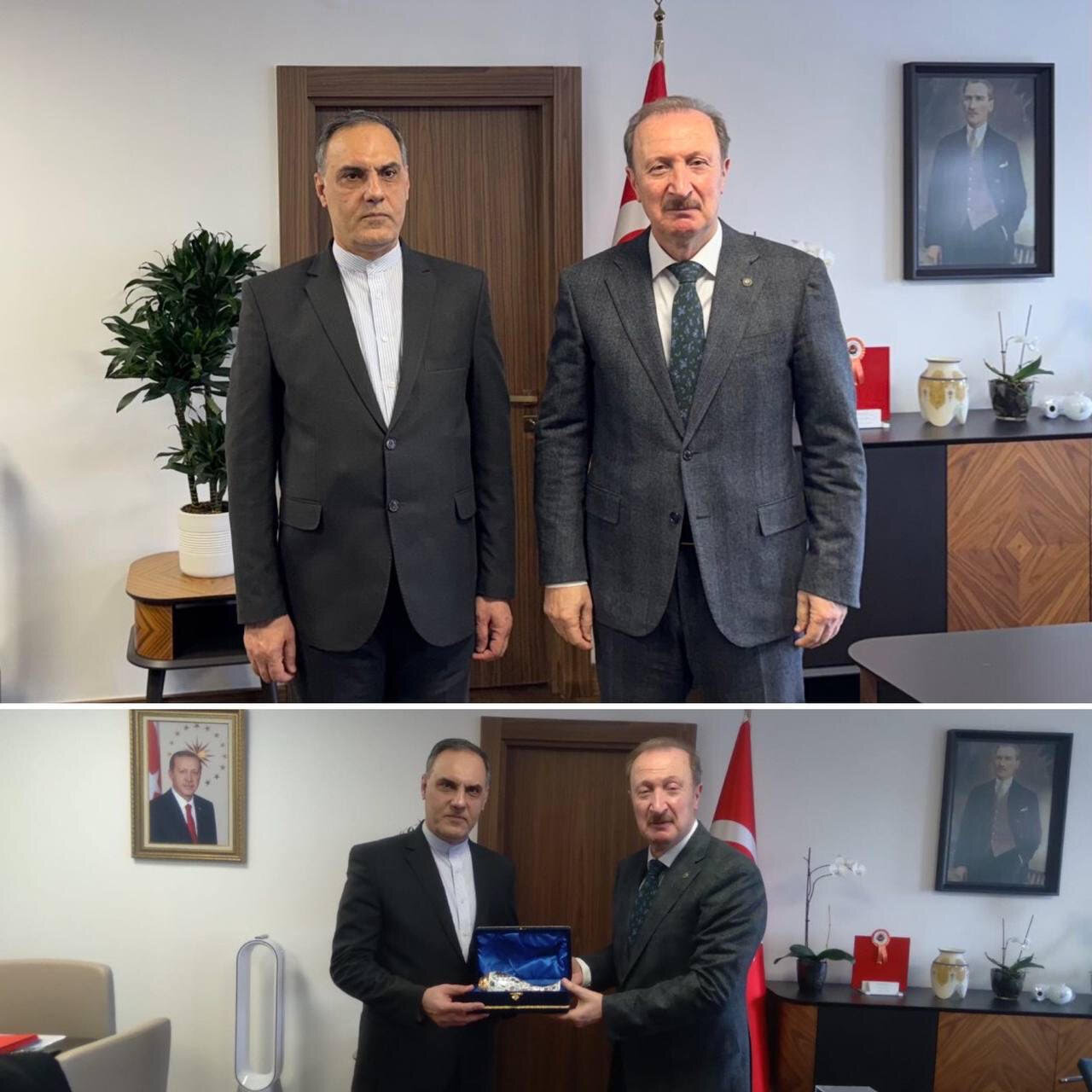Iran, Turkey discuss expansion of transport, transit co-op

TEHRAN- During a meeting between Iranian Ambassador to Turkey Mohammad-Hassan Habibzadeh and Turkish Deputy Minister of Transport and Infrastructure Enver Iskurt, the two sides discussed the ways to expand cooperation between Iran and Turkey in the fields of transportation and transit.
In this meeting, the projects and prospects for the development of relations between the two countries in various fields of rail, road, air and sea transportation were discussed and opinions were exchanged.
In this meeting, the recent problem of truck traffic at the border crossings of Iran and Turkey was also discussed.
Turkey’s recent decision to revoke fuel tax exemptions for Iranian commercial vehicles entering its borders has sparked significant controversy. This measure, implemented on December 29, 2024, forces Iranian truck drivers to pay exorbitant fuel taxes, amounting to 155 percent of Turkey’s special consumption tax rate. Iranian truckers, already facing delays at border crossings, now confront additional financial burdens that could disrupt the region's trade dynamics.
The move comes as a retaliatory response to Iran’s “full-tank” policy, which mandates foreign trucks leaving Iran to pay a customs duty equivalent to the fuel in their tanks to combat fuel smuggling. While Turkey justifies its decision as reciprocal, it undermines ongoing efforts to strengthen bilateral trade relations between the two nations.
Iran’s Minister of Industry, Mining, and Trade Mohammad Atabak has emphasized that enhancing trade between Iran and Turkey requires the establishment of a preferential trade agreement and the removal of tariff restrictions.
During a meeting with Turkish Trade Minister Omer Bolat and his accompanying delegation in mid-December 2024, Atabak pointed out that the trade potential between Tehran and Ankara surpasses the current volume of exchanges.
He stressed that implementing bilateral agreements, reviving preferential trade, and strengthening interactions would serve as the foundation for increasing bilateral trade.
Atabak noted that the economic relations between Iran and Turkey, underpinned by deep cultural and historical ties, should yield a higher volume of trade.
The Iranian minister expressed optimism about progress in the joint cooperation framework between the two countries and referred to it as a crucial step toward boosting trade between the capitals. He added that the initial phase of this cooperation, in line with the terms of the two countries’ Joint Economic Committee, would significantly enhance trade relations.
The official further emphasized that increasing trade would accelerate the implementation of facilitative trade programs. The roadmap developed in collaboration with Iran’s Trade Promotion Organization (TPO) would be pivotal in advancing the execution of these plans and deepening bilateral ties.
Atabak also welcomed the formation of specialized committees to address bilateral issues, stressing that most trade-related challenges could be resolved through the Trade Promotion Organization. He elaborated on the preferential trade agreement between the two countries, suggesting that its terms could be revisited to expand preferential trade volumes.
As a further step in improving bilateral trade, Atabak underscored the importance of joint border committees to address border issues and streamline goods exchange between the neighboring countries. He also highlighted the need to remove certain tariff barriers to increase trade flows.
Concluding, Atabak reiterated Iran’s readiness to expand cooperation with Turkey, emphasizing the industrial advantages of both countries in joint production.
On the Turkish side, Minister Bolat acknowledged that the current trade volume between the two nations does not meet expectations. He expressed confidence that with the revised cooperation framework and agreements with Iran’s Trade Promotion Organization, economic exchanges between the two countries would accelerate.
He also extended an invitation to Atabak to attend the next Economic Cooperation Organization (ECO) summit, scheduled to be hosted by Turkey in the spring of 2025. He emphasized the importance of deepening trade and economic ties within the framework of bilateral agreements, particularly focusing on collaboration among Islamic countries.
Bolat identified the joint development of border crossings, transportation routes, removal of transit restrictions, and tariff barriers as key components of further strengthening Iran-Turkey cooperation.
MA
Photo: Iranian Ambassador to Turkey Mohammad-Hassan Habibzadeh (L) and Turkish Deputy Minister of Transport and Infrastructure Enver Iskurt
Leave a Comment